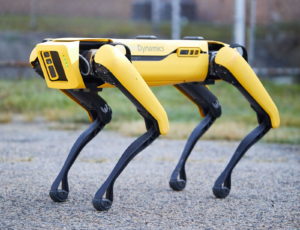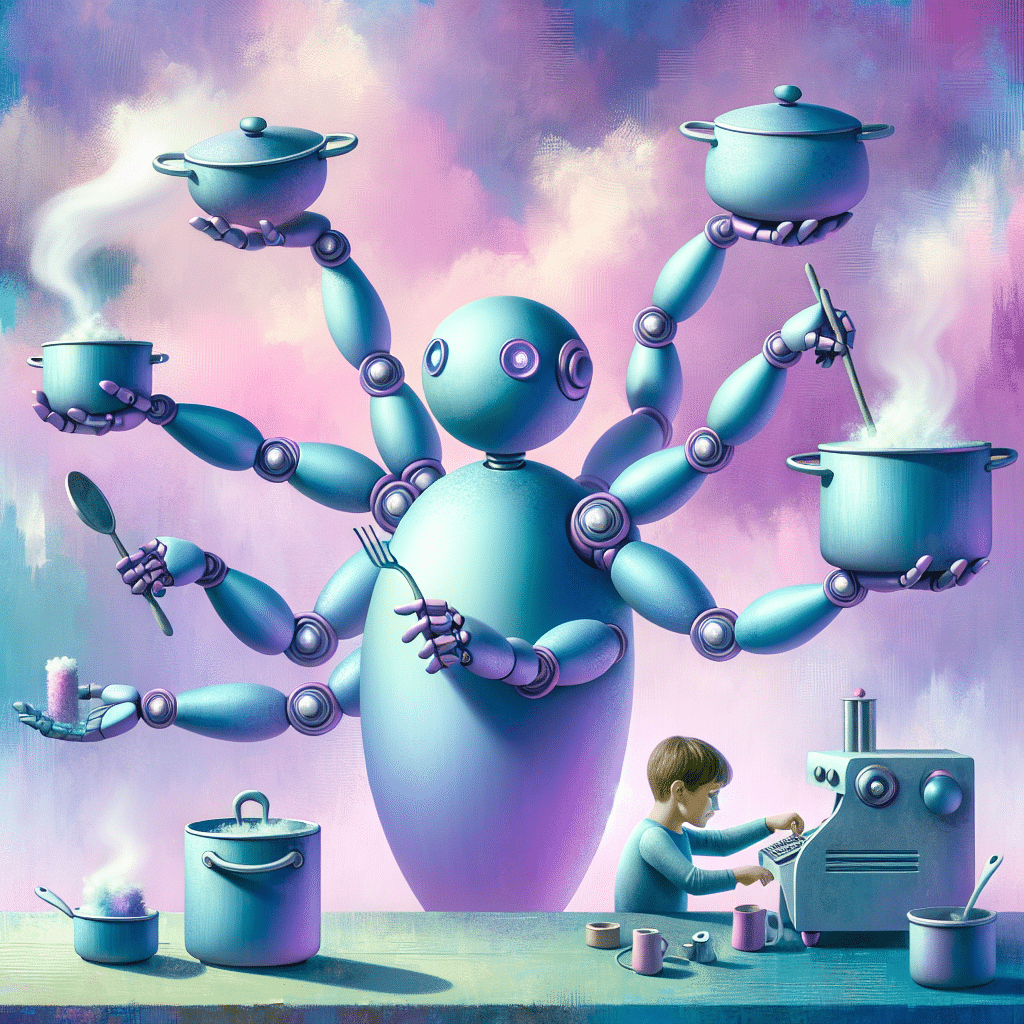I made this list because there are many things AI is doing that seem unnecessary. For example, Meta’s AI describes an image and the comments under it, but I don’t think anyone on Facebook really cares about that. Or planning a trip. Many companies have said this is something their AI assistant will do. Why would I let a computer plan a holiday? Unless you have some specific need for it, it’s not: “Wow, AI”!
By artificial intelligence, I mean robots too, not just generative AI. What the tech boys call “embodied AI” or embodied intelligences. What does “an AI” look like? You’re seeing a robot in your head right now, aren’t you? Or maybe a hologram if you’re fancy.
Relevant on Amazon: I, Robot (the book) by Isaac Asimov, and I, Robot (the movie) with Will Smith.
Since the late 19th century, people have imagined and tried to describe what technology could be capable of in the future. Authors like Kazuo Ishiguro, Harlan Ellison, Philip K. Dick, William Gibson, and of course one of the pioneers in artificial intelligence fiction, Isaac Asimov, have ventured into the AI space, trying to figure out what AI might be capable of in the future. Some of these visions have been positive and most negative, but that’s not what we want to discuss today.
Today, we’ll look at things we wish AI could do, that it might really be capable of doing in our lifetimes.
To Understand Animals:
Your dog is barking, and you don’t understand why. You’re anxious, trying to make it stop, but nothing you do seems to work. Then you remember there’s an app on your phone that can analyze animal sounds and provide an accurate translation, like a language translation app.

How cool would that be? You would no longer have to wonder if your cat is meowing at a high wall because it’s talking to ghosts or just wishing it could climb the wall.
And this is closer than you think: For a few years now scientists have been using machine learning tools like DeepSqueak to gather animal communications. Starting with rodents, it has been adapted to other animals. Scientists at MIT have used AI to chart and understand the grammar of how sperm-whales communicate. Yes, we might be able to talk to whales.
To Help People with Disabilities:
I saw this feature in an OpenAI advert for GPT-4, and it’s really impressive—one of the best features in this version. AI can provide real-time audio guidance for navigating public spaces, detecting obstacles, and identifying landmarks using computer vision. In the ad, a visually impaired man held up his phone, and it accurately described what was in front of him. Additionally, it could serve as a guide for people in wheelchairs.
AI should also facilitate communication by converting spoken language into text and vice versa for the hearing impaired or simply for convenience. Some think AI could be a universal user interface for gadgets in the near future.
Housekeepers:
This is the original reason anyone wants robots! Imagine a robot that could clean the toilet, do the dishes, wake the kids up for school, and handle the dirtiest, most unpleasant jobs that no human wants to do. Robots that could do laundry, iron clothes—these are things everyone would love to have done by robots.
The modern robot housekeeper on Amazon: iRobot Roomba Vac Robot Vacuum
This one is getting closer. There are robot grill cleaners, robot window cleaners, vacuums and mops. A number of major companies are developing humanoid robots, such as Atlas by Boston Dynamics, makers of those creepy robot dogs.

Robotic Companions/Nannies:
This should be like Character AI but in hardware form. With an ongoing and looming crisis in caring for the elderly, this is a hot idea. The elderly, the lonely, those whose children have moved away, could really benefit from this. A robot could serve as both a nanny and a companion, being available around the clock to shop online for them and provide care.
Help with Meal Planning:
AI should assist with meal planning and shopping by analyzing dietary preferences, restrictions, and nutritional needs to suggest balanced meal plans and recipes. It should generate shopping lists based on these plans, track pantry inventory to recommend recipes using available ingredients, and assist in budget management by comparing prices across stores, suggesting budget-friendly options, and tracking spending.
Companies are already rushing to cash in on this idea.





